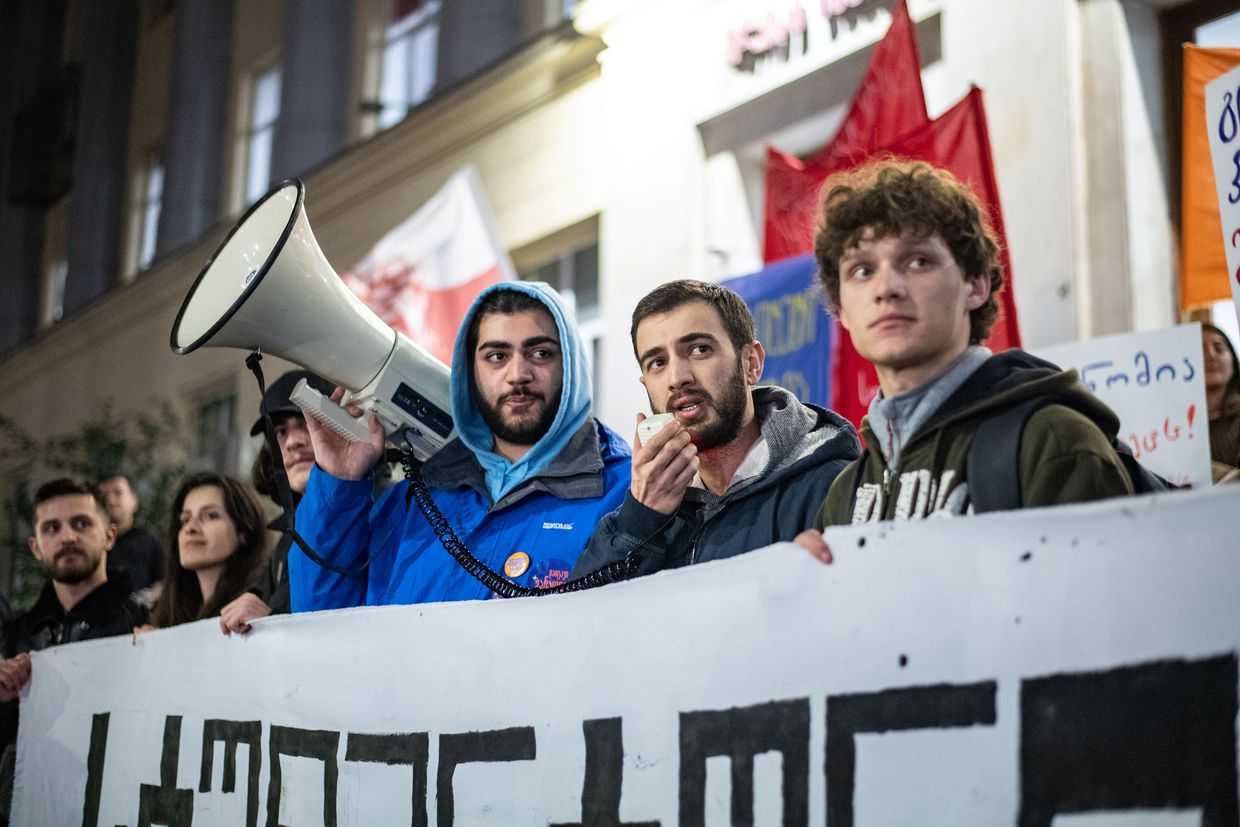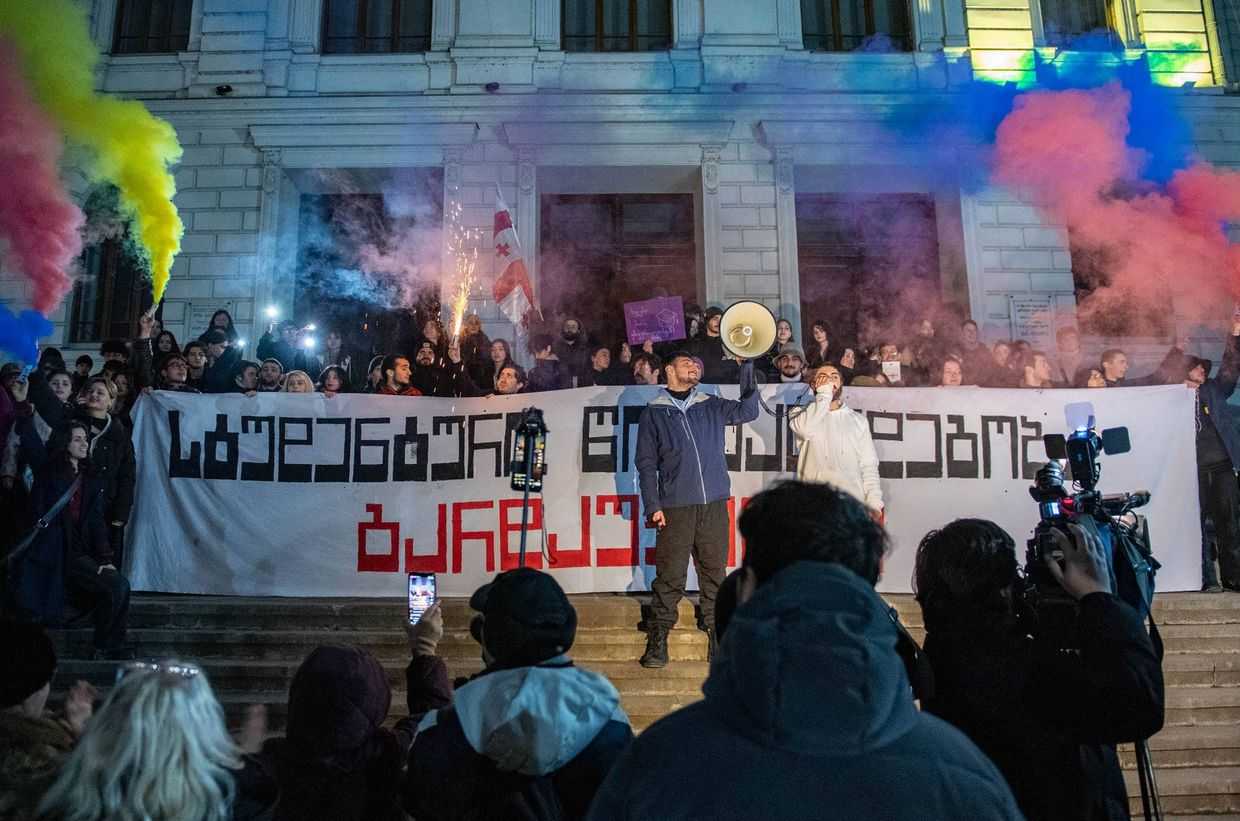Zourabichvili testifies in UK Parliament about the impact of ‘Russian disinformation’ on Georgia

On Tuesday, Georgia’s fifth President Salome Zourabichvili provided evidence on ‘Russian disinformation’ during a Q&A hearing of the UK Parliament’s Foreign Affairs Committee. In her testimony, Zourabichvili emphasised that Georgia was at risk of becoming a grey zone, and that more actions need to be taken by the West to counter Russian influence and propaganda abroad.
The evidence hearing, titled ‘Disinformation diplomacy: How malign actors are seeking to undermine democracy’, focused largely on the political situation in Georgia, and what role Russia is playing in the country’s political and social affairs.
In her testimony, given virtually over Zoom, Zourabichvili highlighted that currently in Georgia, ‘every day brings new repressive laws’, citing the restrictive media and civil society legislation passed in parliament that same day, noting that ‘practically everybody is in one way or another under the repressive laws’.
Zourabichvili compared Georgian Dream’s recent actions to those of Russia’s in terms of its own suppression of civil society, with the difference being that in Georgia, the process ‘is going extremely fast’.
‘We do not have a justice system anymore in Georgia’, Zourabichvili said, after stating that out of 400 people detained as part of the ongoing protests, 50 still remain in prison. She also gave testimony related to the disappearances of civil society activists who ‘reappear in some police station’ and the treatment of prisoners in custody, including most recently of opposition politician Elene Khoshtaria, who accused police of assaulting her before stripping her naked. In all cases, Zourabichvili again noted the similarities to the ‘Russian method’.
However, Zourabichvili emphasised that a characteristic of Georgia’s civil society throughout the decades has been its resilience, and that there still exists a ‘very vivid’ Georgian civil society that is resisting the government oppression.
She also highlighted that a key difference between Georgia and Belarus, which British MPs used as a comparison case in their questioning, was that Georgia had long been ‘completely dependent on and also sustained by’ the EU and US, who reformed all government institutions and have now left the government isolated. Another difference she noted was that she remained in Georgia, unlike the Belarusian opposition leader in exile, Sviatlana Tsikhanouskaya.
However, while resistance continues, Zourabichvili stressed that Georgia is currently at risk of becoming a grey zone, where those sanctioned by Russia can find the freedom to operate.
Citing Georgia’s offshore law, which allows taxes and duties to be exempted on offshore assets being brought into the country, Zourabichvili claimed that any potentially sanctioned oligarch could make use of this loophole by becoming a Georgian citizen. In addition, she noted that Georgian citizens are not considered to be under sanctions by Georgian banks if proof has not been sustained by the Georgian courts, again creating the possibility for anyone friendly to the Georgian government to bypass Western sanctions if they are granted Georgian citizenship by the new president, Mikheil Kavelashvili.
In a separate discussion, after one MP asked whether the West had done enough to counter pro-Russian narratives in the past, Zourabichvili responded: ‘I think we have received no support’.
In her testimony, Zourabichvili took the West, including the UK, to task, making it clear that Georgia has long been a testing spot for Russia, whether in terms of actual military action, such as the 2008 August War, or disinformation campaigns and election interference. She claimed that what Russia learns from its experiences in Georgia, it then transfers into other conflicts, such as in Ukraine.
When asked about whether the UK should sanction the pro-government television station Imedi — often accused of being a Georgian Dream propaganda outlet, and which is owned and operated out of London — Zourabichvili told the MPs that ‘I think you know what you should do’, before going on to criticise the current sanctions policy.
According to her, while the current sanctions being enacted might please Georgia’s protesters, given their focus on punishment, they do not serve the ‘ultimate purpose’ of changing behaviour. Therefore, Zourabichvili pressed that sanctions should be linked in a ‘stick and carrot policy of conditionality’.
During her testimony, Zourabichvili also touched upon the 2024 parliamentary elections, which she claimed had been a ‘large, sophisticated, manipulation operation’ that was ‘inspired and supported by Russians and Russian methods’.
Towards the end of the session, the parliamentary committee was notified that the government had decided to put Russia on the enhanced tier of the Foreign Influence Registration Scheme, meaning that ‘anyone working for the Russian state in the UK will need to declare what they are doing or risk jail’, a decision Zourabichvili welcomed.
‘I don’t know whether it will help us directly, but it is something very positive. The more people realise that something is happening, the sooner we will see a real strategy’, she said.











